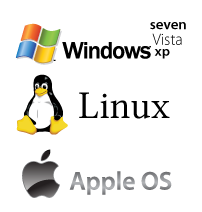There was a time when it looked like Oracle and Google would settle their bitter dispute over the search giant’s Android mobile operating system. CEOs Larry Ellison and Larry Page actually met face-to-face for mediation talks. But three months later, this clash of the tech titans rolls on.
The latest round goes to Google. Just before the Christmas holiday, as reported by Groklaw, the US patent office effectively invalidated one of the seven patents Oracle asserted against Android in a suit filed in August 2010. Google had asked the patent office to reexamine the patent — which describes a way of “controlling access to a resource” — and the office ruled that 17 of the patent’s 21 claims, including the sole claim Oracle asserted in the case.
The number of valid patent claims in the case is dwindling, but the rejection is far from a death blow to Oracle’s case. “It’s not uncommon for the patent office to issue a rejection in the final examination,” Michael Dergosits, a professor and patent attorney at Dergosits & Noah, tells Wired. “There are still a lot of hurdles for Google to jump to find themselves in the clear.”
Oracle’s suit accuses Google of violating various patents and copyrights related to Java, the software development platform Oracle acquired with its purchase of Sun Microsystems. With the two Larrys unable to reach common ground during mediation talks this past September, a trial is set to begin in 2012.
The outcome of the case could have a very real effect on the mobile phone and tablet market, including devices that find their way into businesses. If Oracle and Google can’t agree on a monetary settlement, the court could force Google to pay Oracle a fee for each Android device. “Since [Google and Oracle] aren’t direct competitors, the courts are likely to say ‘What is a reasonable royalty?’” Dergosits says. The two sides would enter a “hypothetical negotiation,” Dergosits says, where each hires economists to estimate Google’s revenue from the product and what it’s paying other licence holders. The jury would then award damages based on these estimates.
Google did not immediately respond to a request for comment, but it could pass royalty fees to partners who build and sell Android devices. Currently, Google gives away the mobile OS. These partners may then pass the cost on to consumer and businesses using the devices. Oracle declined a request for comment.
RIM’s Blackberry phone is still the clear leader in the business world. An October study from research outfit Enterprise Management Associates found that 52 percent of organizations of more than 10,000 employees use the BlackBerry as their primary device, compared to 20 and 17 percent for Android and Apple devices, respectively. But Android is gaining ground.
The survey also polled smaller businesses — outfits that are more nimble than enterprises with entrenched IT departments — and these businesses are more likely to use Androids or iPhones. In the consumer market — which is now a bellwether for the business market, with employees increasingly bringing their own devices to work — Android is the country’s most popular mobile operation system, running on approximately 43 percent of all smartphones in the United States, according to Nielsen. Apple’s iOS stands at 28 percent, Blackberry at 18 percent.
Even RIM sees the way the world is moving. In March of next year, it will release an enterprise platform not only to manage BlackBerries, but also iPhones and Android phones.
Photo: Flickr/pixel0908)
Authors:


















